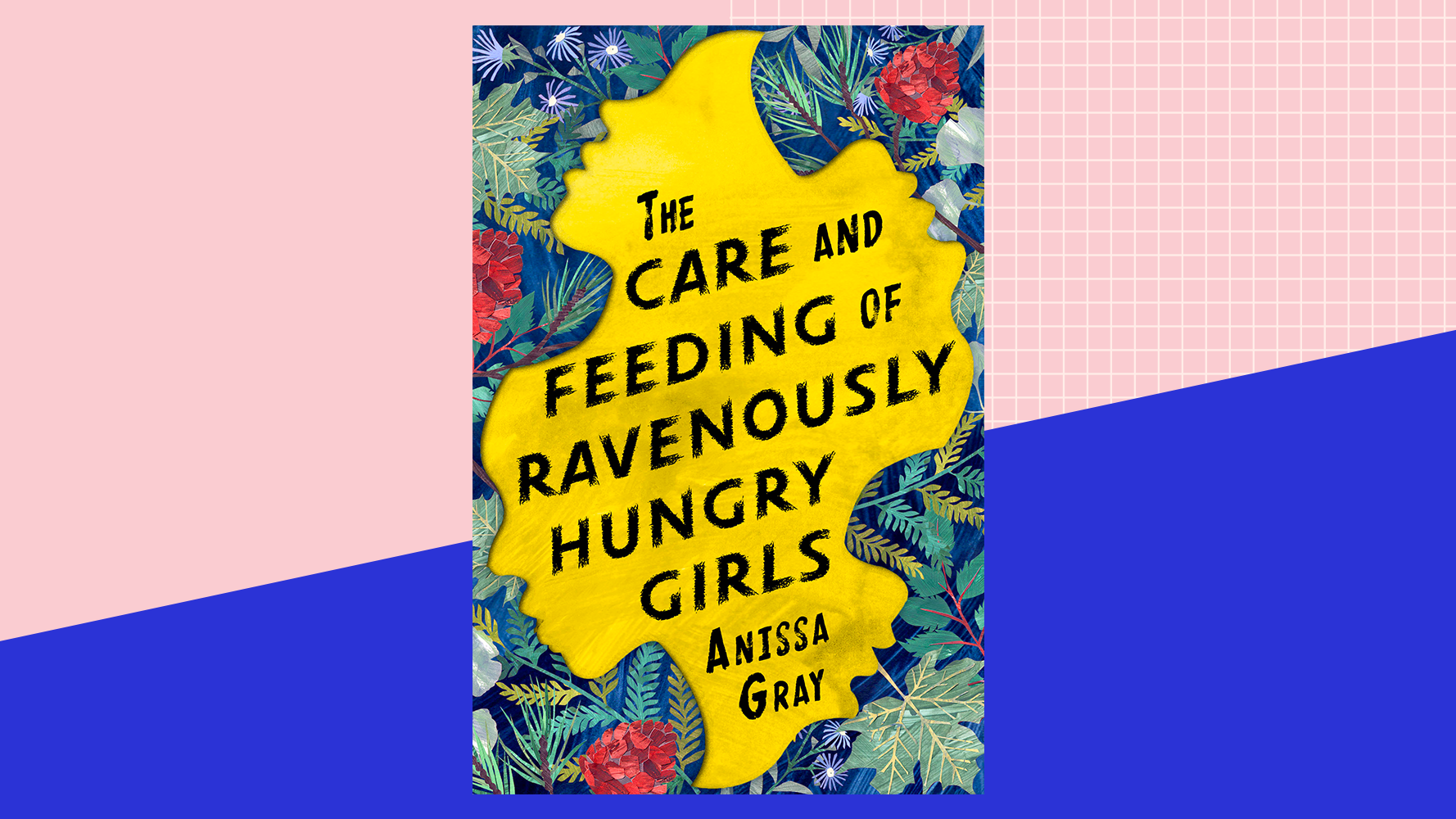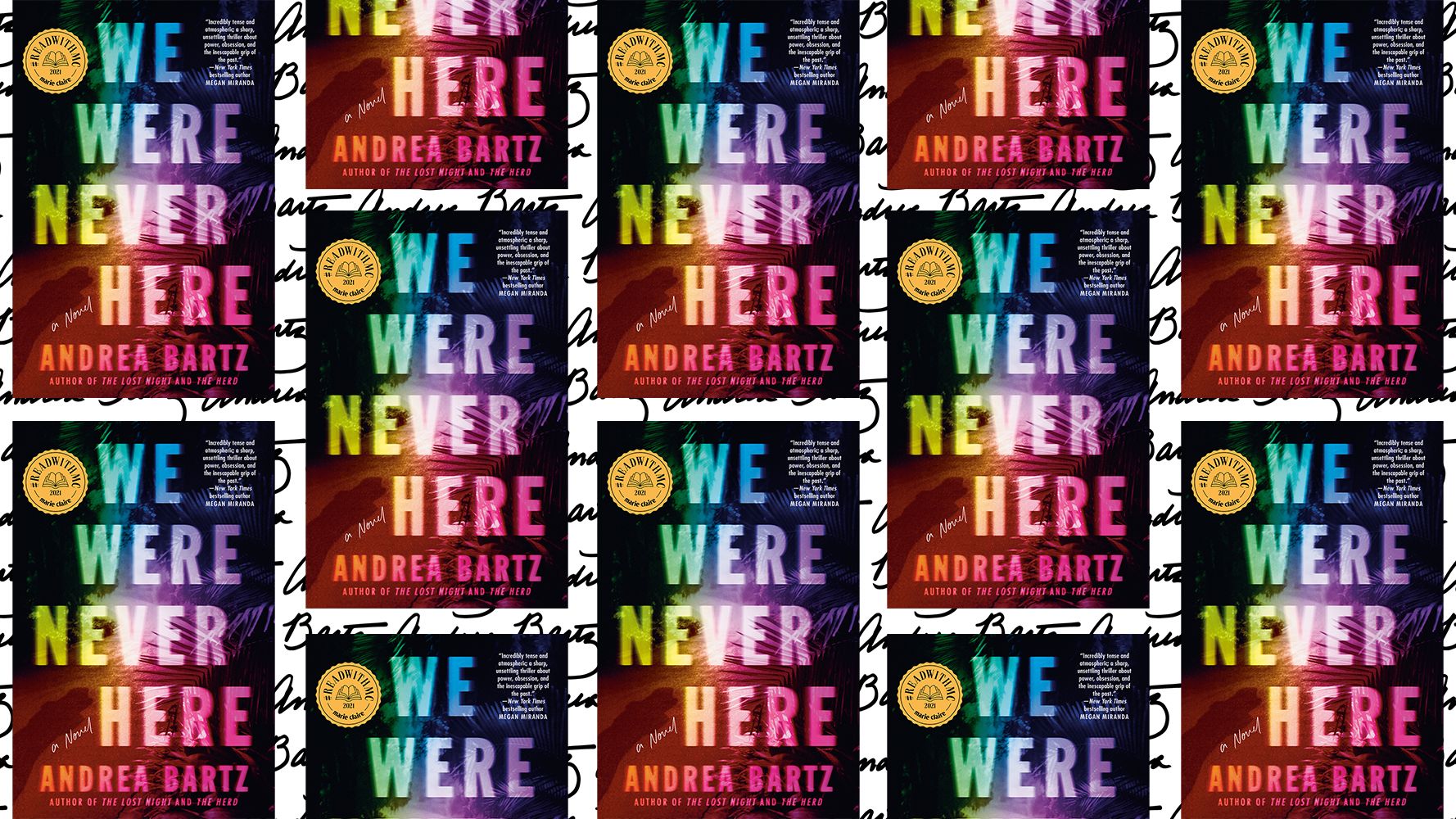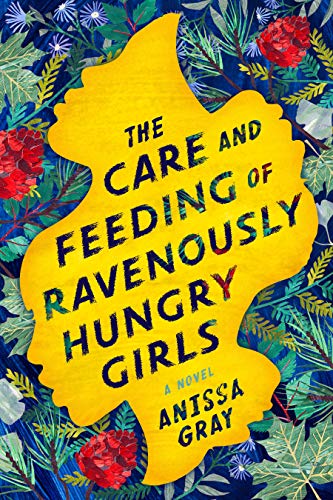'The Care and Feeding of Ravenously Hungry Girls' Is a Stunning Debut From Anissa Gray
Anissa Gray's novel, 'The Care and Feeding of Ravenously Hungry Girls,' is a stunning debut from the author. See what the #ReadWithMC community has to say about the book here.


If the #ReadWithMC reviews are any indication, Anissa Gray's debut novel, The Care and Feeding of Ravenously Hungry Girls, will land on plenty of best books of the year lists. The well-written complexity of its three main characters—sisters Althea, Viola, and Lillian—encourages readers to reflect on their own family dynamics, and what it means to forgive the people we love.
Readers agreed that although the plot may center on Althea and her husband's crimes, Lillian and Viola have equally, if not more, compelling storylines (chapters alternate between each sister's point of view) as they face the reality of Althea's prison sentence and their own struggles, whether with personal relationships, abuse, or an eating disorder. Throughout the novel, the three women are dealing with their own ideas of "hunger"—and what it means to be satiated.
Here, the #ReadWithMC community shares exactly what they loved about Gray's The Care and Feeding of Ravenously Hungry Girls, and why flawed characters always make for a better read. Find out how you can have your review featured on the site for next month's Marie Claire book club pick (Daisy Jones & The Six by Taylor Jenkins Reid), here.
"I need to stop being shocked when debuts are as good as this. But ohhhh, man, this is one seriously impressive debut. There have been a lot of comparisons made between this book and The Mothers—which I 100 percent see and agree—but The Turner House is another touchpoint worth mentioning, not only because they are both debut “problem novels” featuring contemporary African American families whose problems are both social/racial and familial, but also because of the symbolic importance of the physical home in both—the childhood home preserved, changed, revisited in adulthood, its place in memory, as silent witness/keeper of secrets, etc. However, this one plays a little rougher than The Turner House, and the long-arc road of the Butler family’s fracturing and coming back together (and of its individual members fracturing and coming back to themselves) leans a shade more into the realm of tragedy than The Turner House ever ventures.
The book opens in a prison where Althea and Proctor, small business owners, community leaders, parents of teenaged twin daughters—an all-around well-respected couple—have been convicted of numerous white-collar crimes, causing a series of small chaos-ripples to shake the family tree, creating new problems and awakening others long buried. The novel’s first person POV is passed between Althea and her two younger sisters, Lillian and Viola. You would think that Althea’s rags-to-riches-to-rags tale of being a teenager raising three younger siblings after parental death and abandonment to becoming a successful restaurateur to ending up in the clink would be the big draw, but of the three characters, hers was the least interesting to me.
How Viola and Lillian cope with the sudden responsibility of Althea’s daughters (one of whom has become worryingly unruly), with stepping up out from under Althea’s shadow, family secrets old and new, disappointments, betrayals, abuse, the shame and scrutiny of being connected to a big scandal in a small town—all of that is so much richer in meaty drama than Althea’s self-reflective prisoner’s solitude. She’s certainly not boring, but to me she’s the least sympathetic character (which has nothing to do with her crimes), whereas Viola’s bulimia and tenderly fragile relationship with her currently-estranged wife and Lillian’s...okay, basically everything about Lillian, is so damn vivid and affecting. Viola’s an easy sell—a badass, successful lesbian who projects confidence, but is also dealing (or not dealing) with her own destructive compulsions. Lillian’s psychology is even more complex—it’s an emotional web made of duty and suffering; the baby of the family stepping up to be punished for the sins of a family. She’s whatever the word is that’s halfway between martyrdom and endurance that doesn’t make you want to roll your eyes. It's perfection.
It is a fantastic debut and a great addition to the Great American Family drama category. And I mean, really, that cover? Swoon city." —Karen on Goodreads
"The Care and Feeding of Ravenously Hungry Girls is a narrative centered on the lives of three African American sisters and how they cope when one of the sisters, the matriarch, Althea, goes to jail. All sisters have their own lives dealing with their own issues, but are forced to come together to decide what to do with Althea’s children when she goes to jail.
What I liked about this book is that the narrative doesn’t stop at Althea, the one imprisoned. My favorite parts of the book highlight the plight of her sisters as they face their own demons born out of their childhood traumas. The dysfunction in this book made the story so immersive and real. I’m particularly drawn to narratives where the main characters are flawed and vulnerable. The greater the flaws, the more human the characters, and the better the narrative." —@aquietnook
Get exclusive access to fashion and beauty trends, hot-off-the-press celebrity news, and more.
A post shared by Fran (@aquietnook)
A photo posted by on
"The Care and Feeding of Ravenously Hungry Girls follows a family dealing with the fallout after a sister/mother and her husband are convicted and subsequently sent to prison for stealing money from a charity they created. In no time at all I felt a kinship with these characters because I have dealt with similar circumstances within my own family. My mother was imprisoned when I was 13 years old, which provides me with a different point of view than most readers of this book. That being said, I feel like the perspective of the girls in this story was lacking, leaving me craving more inner dialogue from these young ladies. Somehow the most important characters were the least fleshed out.
Anissa Gray has created a lovely tapestry of a family not only dealing with their present circumstances, but with the long buried pains of their pasts that might never have been dealt with if not for this difficult situation of which they've had forced upon them. This is not a topic that is covered enough in literary fiction, which is surprising considering the number of Americans that suffer through the incarceration of their loved ones.
I applaud the author for shining a light on this seemingly dirty secret that families keep for fear of being judged by the actions of those that they love. I know that's how I felt." —Felicia on Goodreads
"As soon as I read the first three pages of this book, I was hooked. The story unfolds from a few different perspectives of those involved in a tragic event, lending a nice array of voices to the narrative. If you enjoy reading about the intricate and often crazy dynamics of families, you’ll love this book. At the heart of the story is a tale about forgiveness, understanding, moms, and love." —@marinaa2214
A post shared by Marie Claire (@marieclairemag)
A photo posted by on
"This is the story of a beautifully flawed family that comes together in love. Told in alternating perspectives between sisters, Violet and Lillian are left to take care of Althea and Proctor’s twin teenage girls after they are arrested for fraud. A stunning debut novel with so much depth...highly recommended!" —@jkslibrary
A post shared by Juani 🌟 | She/Her (@jkslibrary)
A photo posted by on
"A debut novel that highlights family relationships and how the past affects the future. There is a lot going on in this family and there are quite a few characters, so it took a bit for me to get everyone sorted. We learn that the Butler children had a rough rode to travel growing up, but they must face even more tough times as Althea and Proctor commit a crime and are sent to jail. Althea is the eldest, the one who raised her siblings, and she now needs help with her own two teenage daughters. Her two sisters step up to help out.
Alternating chapters give us the point of views from the three sisters: Althea, Viola, and Lillian. It seemed that each sister had a different “hunger” that needed to be dealt with after the loss of their parents and the dysfunction they grew up with. They all seemed to be trying to find their way out of the past to get a fresh start. The characters are flawed, realistic, and compelling.
Lots of obstacles stand in their way, as they come together to survive the latest trial that brings so much scrutiny and pressure to them all. They handle it in their own way–the past and the present. Themes of guilt, love and forgiveness made this a powerful, emotional story that had a profound sadness about it. Recommend to fans of family drama." —Holly B. on Goodreads
"This book was great! It had so much depth and I loved the way the characters grew together and individually throughout. The story was dark and real, but the author still found places to be funny at times. Definitely would recommend if you haven’t picked it up yet!" —@morgan.mcmullen
A post shared by Marie Claire (@marieclairemag)
A photo posted by on
"Wow. There is so much to talk about with this book. Many topics are dealt with throughout this story, including prison, having a parent in prison, eating disorders, childhood abuse, overcoming your child, family sticking together, small town, being a strong woman, the guilt of motherhood, and so much more. I was amazed at the depth of this story. The prose is poetic and will resonate with your soul. Each of the characters are dealing with their own issues, and each of the chapters is told from a different character's perspective. This really allows the reader to get to know each of the characters. This is also one of those novels that make you think about different issues that plague our society, including prison system reform. I feel like this is going to be one of my top reads for 2019." —@readingmama_reviews
A post shared by Nicole (@readingmama_reviews)
A photo posted by on
Missed out on our March pick? Starting April 1, we'll be reading Taylor Jenkins Reid's novel Daisy Jones & The Six. Learn more about the book and read an exclusive interview with the author here.
For more stories like this, including celebrity news, beauty and fashion advice, savvy political commentary, and fascinating features, sign up for the Marie Claire newsletter.
RELATED STORY

Rachel Epstein is a writer, editor, and content strategist based in New York City. Most recently, she was the Managing Editor at Coveteur, where she oversaw the site’s day-to-day editorial operations. Previously, she was an editor at Marie Claire, where she wrote and edited culture, politics, and lifestyle stories ranging from op-eds to profiles to ambitious packages. She also launched and managed the site’s virtual book club, #ReadWithMC. Offline, she’s likely watching a Heat game or finding a new coffee shop.

